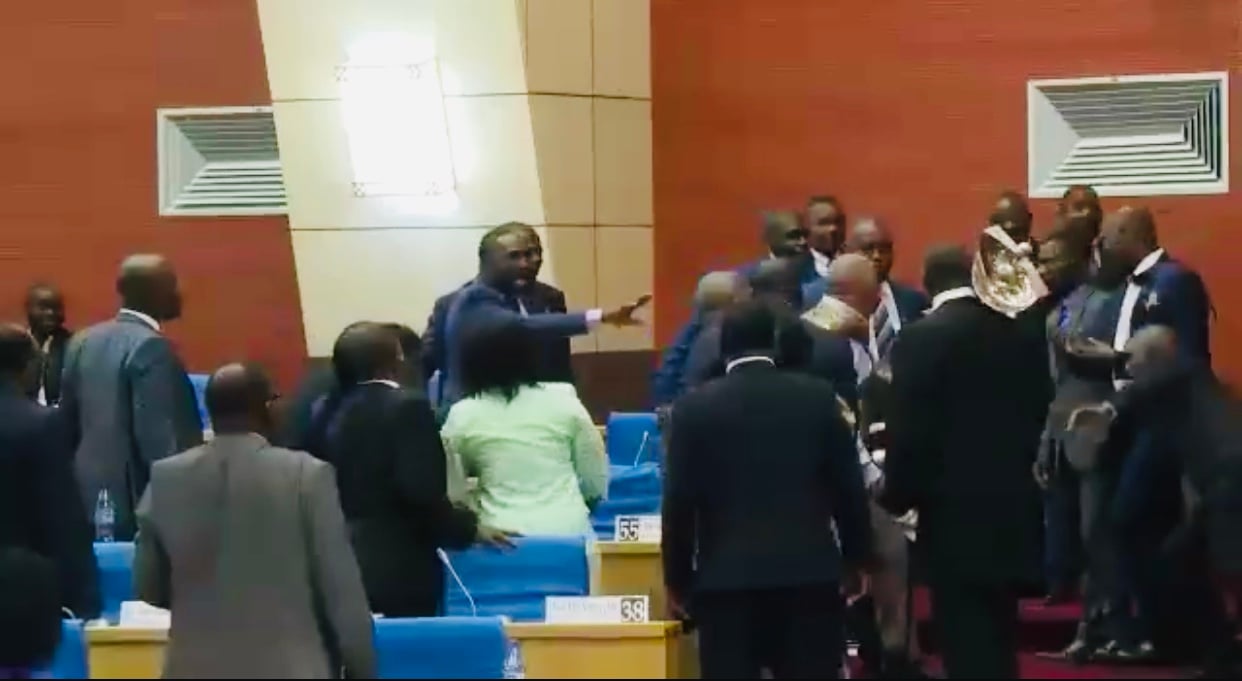ANALYSIS | Is Sameer Suleman Fit to Be Malawi’s Next Speaker of Parliament?
The Speaker of Parliament is one of the most powerful offices in Malawi’s democracy—entrusted with enforcing parliamentary order, ensuring impartiality, upholding decorum, and safeguarding the Constitution from the passions and partisanship of politics. It is a position that demands restraint, credibility, and moral authority. Which is why the Democratic Progressive Party’s (DPP) nomination of Sameer Suleman for Speaker raises serious and uncomfortable questions about whether he possesses the temperament, integrity, and institutional discipline that such a high office demands.

A Rise Fueled by Rhetoric, Not Record
Sameer Suleman’s rise from a little-known People’s Party candidate in 2019—who lost his first parliamentary race—to one of the DPP’s most vocal figures is undeniably striking. After defecting to the DPP, he climbed quickly, becoming the Chairperson of Parliament’s Agriculture and Food Security Committee and later National Organising Secretary of the ruling party. His fiery oratory and populist style have made him a visible player in national politics.
But prominence is not the same as leadership. Suleman’s career has been marked by controversy, courtroom drama, and a combative political style that appears more suited for partisan rallies than parliamentary stewardship.
A Pattern of Indiscipline and Controversy
At the heart of the debate over Suleman’s suitability lies his pattern of indiscipline—a troubling record for someone aspiring to preside over Parliament.
In December 2024, Suleman was suspended from Parliament for inspecting fertiliser depots during a period when he himself had been ordered not to perform official duties. That defiance sparked calls from government MPs for his dismissal as Agriculture Committee chair. The incident reflected a disregard for parliamentary procedure—the very system a Speaker must embody and enforce.

Then, in January 2025, he spent a night in police custody after turning himself in over criminal defamation charges. His social-media outbursts—where he accused fellow MPs of threatening his life—led to lawsuits from senior government officials. Legal commentators at the time warned that, had he been convicted, he risked losing his seat in Parliament altogether.
This episode was followed just months later by another scandal: a sexist tirade against Minister Jessie Kabwira, in which he mocked her personal hygiene during a DPP rally. The remarks triggered a MK 500 million defamation lawsuit and condemnation from gender-rights advocates. For a man aspiring to preside over a chamber that includes women lawmakers, that kind of crude misogyny raises moral and ethical red flags.
A Speaker must defend the dignity of all MPs—not humiliate them for sport.
Populist Appeal vs. Parliamentary Impartiality
Suleman’s defenders argue that his blunt, outspoken nature reflects honesty and courage in a system mired in hypocrisy. Indeed, he has often positioned himself as a “people’s champion,” calling out corruption and waste in government spending.
His critiques of inflated State House budgets—such as his quip that the allocation meant “K702,000 per second”—and his exposure of alleged vote-buying in Parliament demonstrate an appetite for accountability. Yet even these moments of substance are often overshadowed by reckless language and unverified allegations, blurring the line between whistleblowing and sensationalism.
A Speaker cannot afford that ambiguity. The role demands measured neutrality, not the populist instinct to score soundbites.
The Problem of Partisanship
Another key concern is Suleman’s deep entrenchment in DPP party politics. As the party’s National Organising Secretary, he is not merely a member—he is one of its key strategists and mobilisers.
Can a man so embedded in the machinery of a ruling party fairly preside over opposition MPs, ensure equitable time for debate, and discipline his own allies when they breach the rules? The Speaker’s gavel must be wielded above politics. Yet Suleman’s career has thrived on political combat, not consensus-building.
His frequent attacks on opposition figures—especially those laced with personal insults—undermine confidence that he could serve as a neutral arbiter in a divided House.
A Question of Judgment and Decorum
Malawi’s Parliament has, in the past, suffered from Speakers who allowed disorder to flourish or appeared politically captured. The next Speaker must rebuild the institution’s credibility—by setting higher standards of conduct and civility.
Suleman’s record suggests the opposite. His tendency to court controversy, mock rivals, and flout decorum for public applause reveals a temperament misaligned with the gravity of the Speaker’s role.
Even within his own party, his outbursts—such as his reckless public attack on the Muluzi family, accusing them without evidence of receiving MK 5 billion bribes—have drawn condemnation. If he cannot exercise restraint within the DPP, how can he manage the tension of an entire Parliament?
Integrity Matters More Than Eloquence
A Speaker’s legitimacy rests not in their volume but in their virtue. Malawi’s democracy needs a presiding officer who can restore faith in Parliament as a sanctuary of reason, not a theatre of insults. Suleman’s record—marked by legal troubles, sexist language, and frequent defiance of parliamentary norms—makes that restoration unlikely.
There is no doubt about his charisma, his courage to speak, or his understanding of agricultural issues. But those qualities, while valuable in a political agitator, are insufficient for someone tasked with upholding the Constitution, enforcing order, and protecting the dignity of the legislature.
The question, then, is not whether Sameer Suleman can shout the loudest, but whether he can listen longest. Can he preside fairly over those who disagree with him? Can he protect minority voices rather than mock them? Can he be a custodian of discipline when his own record shows defiance?
Verdict: A Risk Too Great for the Institution
Sameer Suleman embodies the energy and defiance of a new political generation—but not the restraint, maturity, or impartiality that the office of Speaker requires. His rise is built on controversy, confrontation, and charisma, yet the Speaker’s chair calls for calm, credibility, and character.
To hand him the gavel would be to gamble the integrity of Parliament on a politician whose temperament has too often undermined the very order he now seeks to command.
Malawi’s democracy cannot afford that risk.
Follow and Subscribe Nyasa TV :

